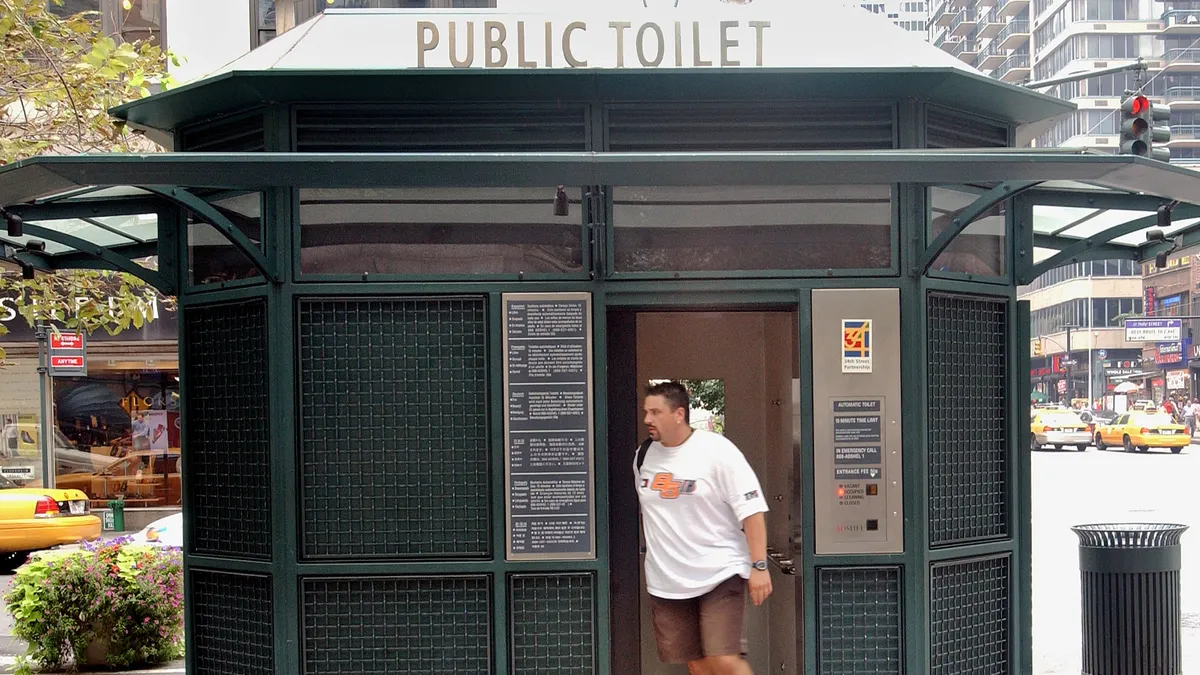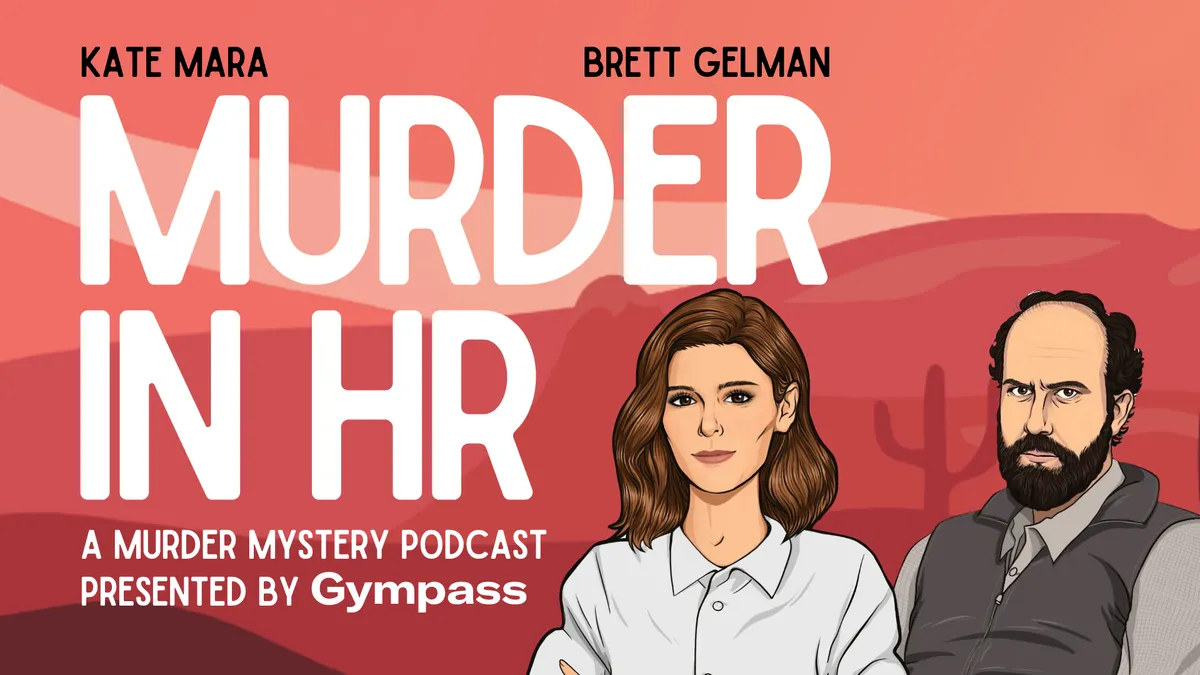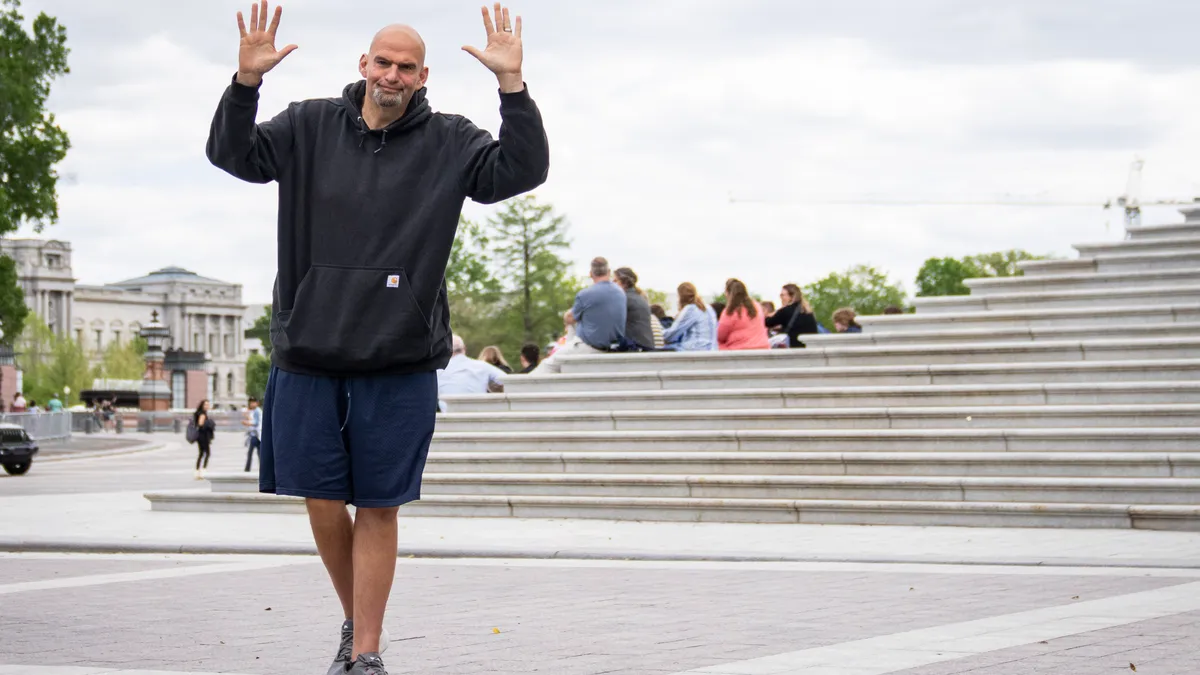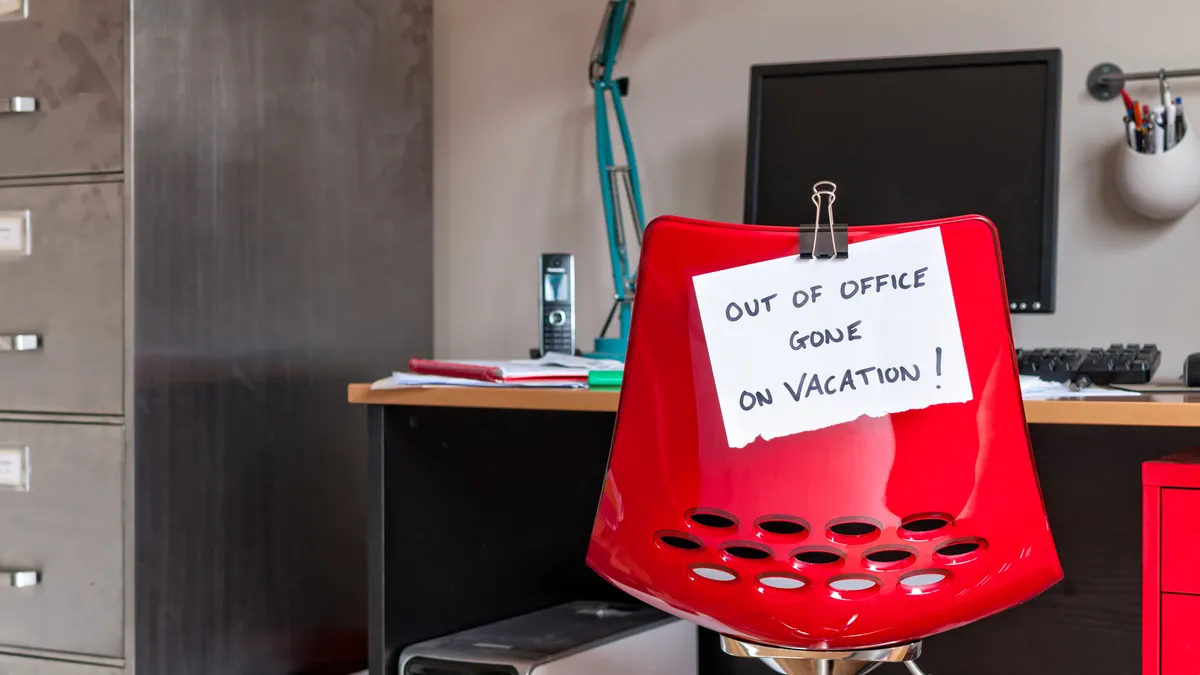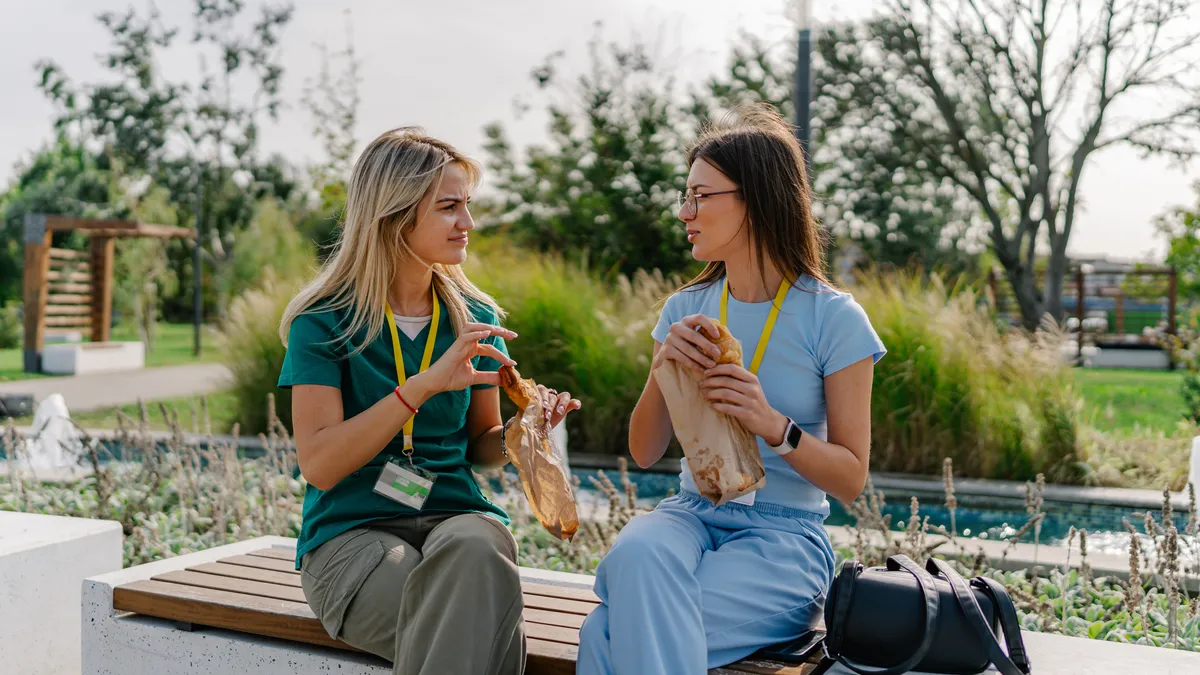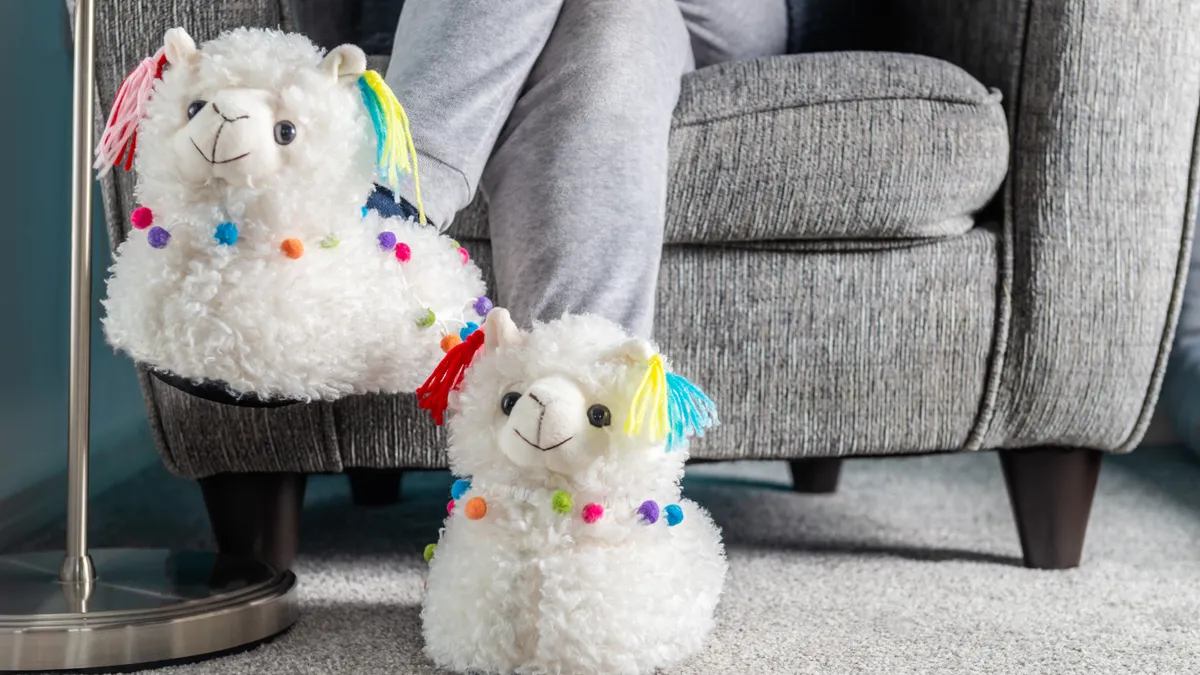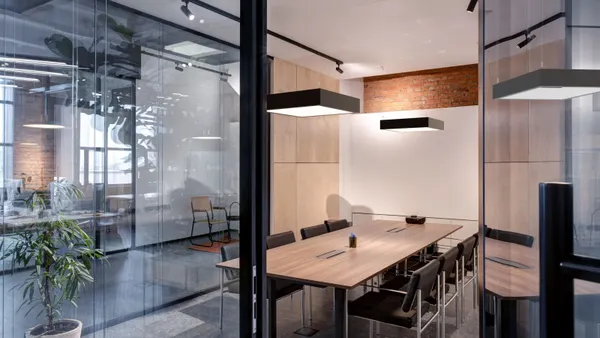Editor’s Note: ‘Happy Hour’ is an HR Dive column from Editor Ginger Christ. Follow along as she dives into some of the offbeat news in the HR space.
Cleaning the public restroom: the most dreaded job among my co-workers and myself when I worked in retail during college. Some things truly cannot be unseen.
Imagine my surprise when a study came through my inbox with this staggering statistic: Nearly 1 in 3 employees would rather clean a toilet than turn to a co-worker for help.
Now, I can be as awkward as the next person, but I'd far rather be “cringe” at work than pull out a toilet brush.
“I think sometimes people don't believe me when they see this number in the research. Like, ‘Really, people would rather clean a toilet?’” Henna Pryor, a workplace performance expert and keynote speaker, told HR Dive. She said her team was trying to illuminate “how difficult it is for people to ask for help these days.”
Pryor, the CEO and founder of performance growth firm Pryority Group, uncovered through the research what the firm calls a hidden workforce crisis: the social muscle atrophy of today’s employees.
Many factors contributed to the trend, from the isolation of the COVID-19 pandemic to the escalation of remote and hybrid work to the rapid acceleration of technology, Pryor said. For some, too, the fear of losing their job makes them less likely to seek help as a form of self-preservation.
She offered some tips for employers and employees alike.
Workers, she said, can take small steps to strengthen their social muscles. For example, a remote worker who does the majority of their interactions with co-workers on Slack or through email or text could schedule a one-hour Zoom coffee chat with a colleague. Or it could be something as simple as asking the cashier at the grocery store how their day was.
“Social skills aren’t fixed traits,” Pryor said. “They are dynamic abilities that we can strengthen over time.”
Employers, for their part, can rebuild workplace public spaces to give workers opportunities for interaction, she said.
“For a long time, our work spaces were public spaces where we didn’t just work together, but we also learned how to work together when we were all next to each other, all in the office,” Pryor said. “We learned how to be messy in proximity with each other. We accidentally spilled coffee on our colleagues. We accidentally bumped into them. We accidentally mispronounced their name. And in real time, we had those opportunities to course-correct.”
One remedy could be for leaders to start meetings by encouraging workers to share cracked egg stories — moments where they had a blunder or misstep during the past week — to break down barriers, she said. Or they could end meetings by having employees find accountability buddies to follow up with on progress they’re making on a task, to keep communication flowing past the meeting’s end.
She recommends companies create “intentionally designed strategies and spaces that create more of this interaction where it doesn’t as naturally exist.”
“One hundred percent, I feel very strongly that social skill-building is a business strategy, in addition to being something that can be an HR initiative,” Pryor said. “We’re having this gradual decline of communication, collaboration and conflict, and those things are all directly tied to business outcomes, like the stalled innovation, the fractured team.”
While most employers would like to have clean toilets, I think it’s a safe bet to assume they’d also enjoy the benefits of a collaborative workforce that can tackle problems together — instead of hiding in the bathroom stalls.



